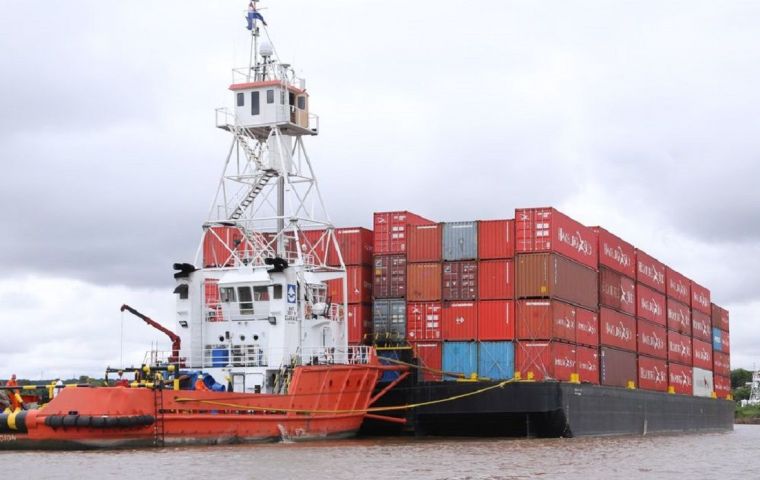MercoPress. South Atlantic News Agency
Uruguay interested in increased Paraguayan barge traffic
 There is a longstanding rivalry between Uruguayan and Argentine ports to handle Paraguayan cargo
There is a longstanding rivalry between Uruguayan and Argentine ports to handle Paraguayan cargo Uruguay is in talks with Asunción to improve the flow of Paraguayan barge fleet – the world's third-largest – through the port of Montevideo. In addition, extra berths have been requested at the port of Nueva Palmira.
Representatives from Paraguay's River and Maritime Shipowners' Center (Cafym), along with officials from Uruguay's National Port Administration (ANP), Navigation Center, and the National Logistics Institute, met to discuss expanding anchorage areas, lowering port costs, and improving container and scanning procedures.
The ANP is offering special rates to attract more Paraguayan barge traffic, aiming to win back business that has recently shifted to Argentina, mainly due to pricing.
Given the long-standing rivalry between the ports of Buenos Aires and Montevideo for the same cargo, Uruguay is actively trying to improve its logistics costs to regain its competitive edge. Paraguay's main trade channel is the waterway, which moves over 90% of its exports and 85% of its imports.
Cafym President Bernd Gunther stated that the Nueva Palmira terminal has insufficient mooring capacity. This forces Paraguayan tugboats to moor in Argentina, which increases transit times.
Gunther noted that more mooring berths were needed because of projected growth in cargo volume, specifically iron ore, which is expected to rise from 8 million tons in 2025 to 12 million tons in 2026. “These are initiatives to improve traffic on the current waterway,” said Gunther.
ANP sources mentioned an exemption of fees for Paraguayan ships using Montevideo's outer harbor anchorage areas. The president of Cafym believes that Montevideo has lost a lot of container cargo in recent months, mainly due to a tariff issue.




Top Comments
Disclaimer & comment rulesCommenting for this story is now closed.
If you have a Facebook account, become a fan and comment on our Facebook Page!